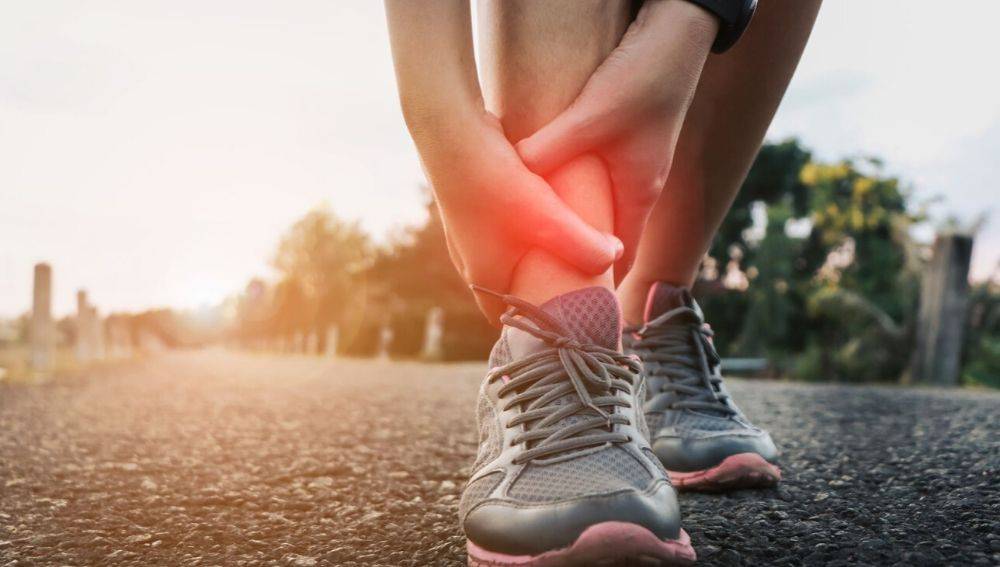Your Cart is Empty
Top 8 Nutrition Myths of 2020
July 15, 2020 6 min read

Myth 1: Carbs are bad for you
It seems that carbs have replaced fats as the enemy of a healthy diet. Many people believe the healthiness of foods are based on their glycemic index, although research on low-glycemic diets show little evidence (1, 2, 3, 4, 5, 6, 7) even for diabetics (8, 9, 10). This lack of evidence is also found for the carbohydrate-insulin model of obesity, which says that obesity is caused by the insulin response they carbohydrates create (11,12).
These findings are also found with long-term keto diets that test real-world effectiveness. Meta-analyses reveal that they do not provide clinically relevant weight loss differences when compared to higher-carb diets (13,14).
We are not saying that cutting carbs intake cannot be helpful, especially processed carbs, we think it can be especially if it leads to healthier eating choices. But if cutting carbs makes you feel bad and eventually eat worse because you can not stick to it then you should find a diet that works for you.
Myth 2: Red meat is bad for you
Now we’ve all; heard that statement that red meat causes cancer. Now, this is difficult because almost everything we eat has the potential to cause or be involved with the growth of cancer cells (15). Evidence suggests that highly processed meats especially when charred during cooking are a risk for cancer when combined with poor lifestyles (16,17), but a healthy diet which consists of quality red meats is not something to worry about.
Myth 3: Salt is bad for you
We have all heard that salt is bad for you and there are even studies which support this notion (18, 19, 20). But what a lot of people don’t realise is that salt (sodium) is an essential mineral which is critical to optimal health, it is when you consume too much sodium that is the problem.
Salt is essential to your health, but most people consume too much of it. That's because it's added to so many foods, including processed foods and restaurant meals.
The recommended daily amount of salt is 2,300 mg per day. Most Americans eat about 3,400 mg per day.
High blood pressure is a risk factor for heart disease, stroke and kidney disease. If you have high blood pressure, reducing your intake of sodium can help lower your blood pressure.
If you want to cut back on salt, use less when cooking or buy low-sodium products from the grocery store. You may need to taste food before adding salt as some dishes might not need as much as you think they do!
Myth 4: Bread is bad for everyone
Bread is now associated with gluten and getting fat. Now bread itself won’t make you fat, but it is high in calories and is very easy to consume. There is also the issue of condiments that many people eat with bread being high in fat and sugar, both again high in calories. Gluten critics claim that any amount of gluten is bad for anyone. Yes, for some people gluten can be harmful but not all (21, 22).
If the calories and macros from bread fit into your healthy balanced diet and it doesn’t cause any irritability or an allergic reaction than it is fine to consume in reasonable amounts.
Myth 5: Fresh is more nutritious than frozen
Frozen food is generally grouped with canned food, and seen as less desirable than fresh food. But overall they are very similar. But what many people do not realise is that frozen produce may actually have more nutritional value because of the process it undergoes before freezing. Frozen produce undergoes blanching in hot water for a few minutes before freezing to inactivate enzymes that cause unfavourable changes nutritional value (23).
Myth 6: Food nutrients are always superior to supplemental nutrients
Most people would assume that food nutrients are better than supplements, but it is not always the case. For example the curcumin in turmeric, On its own your body cannot absorb it very well but taken in liposomal form or supplemented with piperine, it’s absorption increases dramatically (24). Similar examples can also be found for Vitamin K1 and Vitamin B9.
Myth 7: Eat more often to boost your metabolism
Now this one is a strong myth that has been around for a long time. Now although digestion does increase your metabolism, it doesn’t matter how many meals you have, if the amount of food is the same throughout the day your body will still burn the same amount of calories (25).
Myth 8: You need to eat breakfast
Many people think that breakfast is important because it boosts your metabolism for the day and skipping it can crash your metabolism. But studies in both overweight and healthy people show that skipping breakfast does not inherently affect your metabolism negatively (26, 27).
Eating breakfast will not help you lose weight or reduce your hunger. It may even increase your risk for obesity if it turns into a sugary pastry or other calorie-rich option that leaves you feeling even hungrier later in the day.
References
- Fleming P, Godwin M. Low-glycaemic index diets in the management of blood lipids: a systematic review and meta-analysis . Fam Pract. (2013)
- Schwingshackl L, Hobl LP, Hoffmann G. Effects of low glycaemic index/low glycaemic load vs. high glycaemic index/ high glycaemic load diets on overweight/obesity and associated risk factors in children and adolescents: a systematic review and meta-analysis . Nutr J. (2015)
- Zhang R, et al. Effects of low-glycemic-index diets in pregnancy on maternal and newborn outcomes in pregnant women: a meta-analysis of randomized controlled trials . Eur J Nutr. (2018)
- Evans CE, et al. Glycemic index, glycemic load, and blood pressure: a systematic review and meta-analysis of randomized controlled trials . Am J Clin Nutr. (2017)
- Clar C, et al. Low glycaemic index diets for the prevention of cardiovascular disease . Cochrane Database Syst Rev. (2017)
- Gardner CD, et al. Effect of Low-Fat vs Low-Carbohydrate Diet on 12-Month Weight Loss in Overweight Adults and the Association With Genotype Pattern or Insulin Secretion: The DIETFITS Randomized Clinical Trial . JAMA. (2018)
- Milajerdi A, et al. The effect of dietary glycemic index and glycemic load on inflammatory biomarkers: a systematic review and meta-analysis of randomized clinical trials . Am J Clin Nutr. (2018)
- Wang Q, et al. Effects comparison between low glycemic index diets and high glycemic index diets on HbA1c and fructosamine for patients with diabetes: A systematic review and meta-analysis . Prim Care Diabetes. (2015)
- Han S, et al. Different types of dietary advice for women with gestational diabetes mellitus . Cochrane Database Syst Rev. (2017)
- Ojo O, et al. The Effect of Dietary Glycaemic Index on Glycaemia in Patients with Type 2 Diabetes: A Systematic Review and Meta-Analysis of Randomized Controlled Trials . Nutrients. (2018)
- Hall KD, Guyenet SJ, Leibel RL. The Carbohydrate-Insulin Model of Obesity Is Difficult to Reconcile With Current Evidence . JAMA Intern Med. (2018)
- Hall KD. A review of the carbohydrate-insulin model of obesity . Eur J Clin Nutr. (2017)
- Johnston BC, et al. Comparison of weight loss among named diet programs in overweight and obese adults: a meta-analysis . JAMA. (2014)
- Bueno NB, et al. Very-low-carbohydrate ketogenic diet v. low-fat diet for long-term weight loss: a meta-analysis of randomised controlled trials . Br J Nutr. (2013)
- Schoenfeld JD, Ioannidis JP. Is everything we eat associated with cancer? A systematic cookbook review . Am J Clin Nutr. (2013)
- Pham NM, et al. Meat consumption and colorectal cancer risk: an evaluation based on a systematic review of epidemiologic evidence among the Japanese population . Jpn J Clin Oncol. (2014)
- Durko L, Malecka-Panas E. Lifestyle Modifications and Colorectal Cancer . Curr Colorectal Cancer Rep. (2014)
- Stamler J, et al. Relation of Dietary Sodium (Salt) to Blood Pressure and Its Possible Modulation by Other Dietary Factors: The INTERMAP Study . Hypertension. (2018)
- Soi V, Yee J. Sodium Homeostasis in Chronic Kidney Disease . Adv Chronic Kidney Dis. (2017)
- Fiocco AJ, et al. Sodium intake and physical activity impact cognitive maintenance in older adults: the NuAge Study . Neurobiol Aging. (2012)
- Elli L, et al. Evidence for the Presence of Non-Celiac Gluten Sensitivity in Patients with Functional Gastrointestinal Symptoms: Results from a Multicenter Randomized Double-Blind Placebo-Controlled Gluten Challenge . Nutrients. (2016)
- Shahbazkhani B, et al. Non-Celiac Gluten Sensitivity Has Narrowed the Spectrum of Irritable Bowel Syndrome: A Double-Blind Randomized Placebo-Controlled Trial . Nutrients. (2015)
- Barbosa-Cánovas G, Altunakar B, Mejía-Lorio D. Chapter 1. Introduction to freezing . Freezing of fruits and Vegetables: An Agri-Business Alternative for Rural and Semi-Rural Areas. (2005)
- Storka A, et al. Safety, tolerability and pharmacokinetics of liposomal curcumin in healthy humans . Int J Clin Pharmacol Ther. (2015)
- Stote KS, et al. A controlled trial of reduced meal frequency without caloric restriction in healthy, normal-weight, middle-aged adults . Am J Clin Nutr. (2007)
- Betts JA, et al. The causal role of breakfast in energy balance and health: a randomized controlled trial in lean adults . Am J Clin Nutr. (2014)
- Jakubowicz D, et al. Fasting until noon triggers increased postprandial hyperglycemia and impaired insulin response after lunch and dinner in individuals with type 2 diabetes: a randomized clinical trial . Diabetes Care. (2015)
Also in Diet and Nutrition

Best Supplements for Injury Recovery (And Nutrition Tips to Heal Faster)
May 21, 2025 6 min read
Read More Recent Articles
- Best Supplements for Injury Recovery (And Nutrition Tips to Heal Faster)
- Does Whey Protein Have Lactose? What You Need to Know
- Protein Shake for Breakfast: Is It a Healthy Choice?
- How to Bulk: A Complete Guide for Beginners
- 10 Quick Pre-workout Bites to Power Your Training
- Banish the Belly Bloat: Simple Solutions for a Flatter Feeling
- Navigating the Golden Years: Enhancing Mobility as You Age
- A Comprehensive Dive into the World of Biohacking
- Why you should try the Mediterranean Diet
- Managing Blood Sugar Spikes: A Comprehensive Guide for Better Health
${{amount}}










![[Batch-tested] Collagen Pro® - Protein Powder](http://www.vpa.com.au/cdn/shop/files/vpa-australia-collagen-powder_1600x.webp?v=1770851517)





